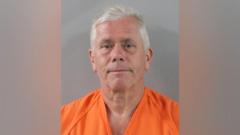Senator Miguel Uribe, who was shot during a campaign rally in June, has passed away at the age of 39, prompting nationwide mourning and renewed fears of political violence in Colombia.
Colombia Mourns Death of Senator Miguel Uribe, Following Devastating Shooting Incident

Colombia Mourns Death of Senator Miguel Uribe, Following Devastating Shooting Incident
Tragic loss of a prominent Colombian politician after severe gunshot injuries raises concerns over political violence.
Senator Miguel Uribe, a 39-year-old political figure and rising star in Colombia's Democratic Centre party, died two months after suffering severe gunshot wounds in a targeted attack during a campaign event on June 7 in Bogotá. His death was confirmed by his wife, María Claudia Tarazona, who expressed heartfelt gratitude for their life together and his dedication as a father.
Uribe was shot multiple times, with serious injuries sustained to his head and leg. He underwent several operations during his hospital treatment, battling complications including bleeding in the central nervous system. Although a teenage suspect was arrested shortly after the shooting, the motives behind the attack remain unclear, raising questions and concerns in a nation still grappling with its violent past.
In the wake of Uribe's death, political reactions have surged. President Gustavo Petro extended his condolences to Uribe's family, highlighting the tragedy's implications for Colombia's political climate. Uribe had been an outspoken critic of President Petro and was vying for his party’s nomination in the upcoming 2026 presidential elections, further emphasizing the stakes surrounding his assassination.
The shocking nature of this attack has sparked a wave of silent marches across Colombia as citizens demand justice and reflect on the country’s turbulent history of political violence. Uribe’s mother, a journalist, was infamously kidnapped and killed by drug cartels in the 1990s, making her son’s political aspirations deeply personal and fraught with peril.
While Colombia has seen notable improvements in security over the past few decades, the nation still suffers from a relatively high murder rate, and many public figures face threats to their safety. The deadly incident has prompted discussions among political analysts regarding future dynamics, suggesting that right-wing narratives may gain traction post-Uribe’s death.
Vice-President Francia Márquez emphasized the need for unity against violence, stating, “Democracy is not built with bullets or blood.” The ramifications of Uribe's demise echo far beyond Colombian borders, as international leaders, including U.S. officials, call for accountability and justice in a nation still navigating the complexities of political violence.

















